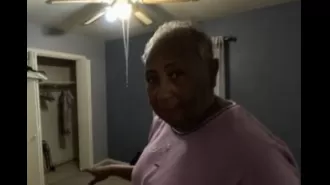I learned about the disturbing world of "minor attracted people" - it's worse than expected.
More shocking than you can imagine.
August 8th 2025.

I was scrolling through TikTok late one night before bed when I came across a video that caught my attention. The creator was warning viewers about a new term that was gaining traction on the platform: Minor Attracted Person. Curiosity got the best of me and I found myself diving deep into a movement that has sparked outrage online. It's a community of people who openly admit to being attracted to children.
As I delved further into this world, I found myself on forums and monitoring discussions on social media. To gain access, I created a generic username, domain123. Those early weeks were filled with anxiety and constant clearing of my search history, as I tried to mentally erase some of the disturbing content I had encountered.
Members of this community spoke openly about their unsettling attraction to minors, sending me on an emotional rollercoaster of outrage, pity, and uncomfortable clarity. I couldn't believe what I was seeing - people advocating for things like child sex dolls and the right to work in positions that involved the safeguarding of children. But I also witnessed others condemning these actions, sharing their internal struggles and describing their attraction as a disease that causes them great pain.
What surprised me even more was the level of sympathy some of these voices received from outsiders. The term "minor-attracted person" has actually been around for almost 30 years, originating in pro-paedophile circles in the late 1990s. But now, there are those who are advocating for a less stigmatizing label.
I spoke with therapist Nadav Antebi-Gruszka, who has worked with individuals who have confessed to being attracted to children. He explains that the focus is on the attraction itself, and that just because someone is attracted to minors, it doesn't necessarily mean they will act on those urges. Nadav argues that the term "paedophile" is too loaded and often met with disgust and condemnation, overshadowing the fact that attraction does not always lead to harmful actions. The same goes for the word "predator," which can feel like a misrepresentation for those who have not offended.
This is a controversial viewpoint, but Nadav explains that it is a common misconception that all individuals attracted to minors will inevitably act on those feelings. According to the World Health Organization, paedophilic disorder is defined as a condition marked by a persistent and intense sexual attraction to prepubescent children. But it is only diagnosed if the person has acted on those urges or is experiencing significant psychological distress because of them. It's important to note that not everyone with paedophilic interests meets the criteria for diagnosis.
Nadav stresses that it's crucial to understand that not all individuals attracted to minors will act on those feelings. He shares the words of one minor-attracted person he knows, who says, "I love children. Why would I want to do anything that would harm them or cause trauma to them?"
Of course, the term "minor-attracted person" has been met with anger and criticism. Many argue that it is an attempt to normalize unlawful behavior, and that it could potentially silence victims of child sexual abuse. There are also concerns that non-offenders could exploit this neutral label.
But despite the backlash, a community has formed around the term MAP (Minor Attracted Person), though it remains deeply divisive online. The topic of child protection is a sensitive and contentious one, and therapists who engage with this movement have faced stigma and even lost their jobs and reputations. However, Nadav remains active and fiercely protective, co-founding Heartspace Therapy in New York, which supports minor-attracted clients. This year, he even spoke at a conference aimed at training mental health professionals to provide affirmative MAP assistance.
In his therapy sessions with clients, Nadav begins by acknowledging that their urges cannot be acted upon. From there, he helps them process and manage the emotions that come with this reality. He believes that it is in our best interest to promote the health, well-being, dignity, and rights of MAPs in order to prevent child sexual abuse. Shutting people out entirely only increases the risk of offending.
Despite the backlash, support for MAP-affirmative services is growing. Organizations like the Prostasia Foundation are advocating for destigmatization and helping MAPs lead law-abiding lives. They argue that efforts to combat child sexual abuse are often driven by emotion rather than evidence, which undermines effective prevention.
However, there are also concerns about the resources and guidance offered by these organizations. One TikTok creator who monitored activity on these platforms shared their findings, stating that these forums are often echo chambers for paedophiles. Some discussions revolve around the age of consent and ways to satisfy fantasies without breaking the law.
In conclusion, the term "minor-attracted person" and the movement it represents are met with both support and scrutiny. With the safeguarding of children at stake, there is no room for ambiguity. We must continue to have open and honest discussions about this complex issue while also prioritizing the safety and well-being of children.
I couldn't believe what I was seeing on TikTok. It was a typical late-night scroll before bed, but this time I stumbled upon a creator discussing a term that was gaining popularity on the app: Minor Attracted Person. My curiosity piqued, I delved deeper into this movement that has sparked outrage online. It's made up of individuals who openly admit to being attracted to children.
As I shadowed forums and monitored social media discussions, I was both fascinated and disturbed by what I discovered. People spoke candidly about their unsettling attraction to minors, while others condemned such actions and opened up about their internal struggles. I was taken on an emotional rollercoaster, feeling a mix of outrage, pity, and uncomfortable clarity.
One of the most shocking things I witnessed was people advocating for child sex dolls and the right to work in safeguarding positions with kids. What was even more surprising was the degree of sympathy some of these voices received from outsiders. It seemed that the term "minor-attracted person" had been around for almost 30 years, but was now gaining traction as some individuals pushed for a less stigmatizing label.
I spoke with Nadav Antebi-Gruszka, a therapist who works with individuals who have confessed to having a sexual attraction to children. He provided insight into this community and explained the reasoning behind their push for a different label. According to Nadav, the term "paedophile" carries too much weight and often elicits disgust, fear, and condemnation. This overshadows the fact that attraction does not always lead to harmful actions. The same goes for the term "predator," which can feel like a misrepresentation for those who have not offended.
Understandably, this is a controversial topic. The World Health Organization's International Classification of Diseases defines paedophilic disorder as a condition marked by a persistent and intense sexual attraction to prepubescent children. However, this diagnosis only applies if the individual has acted on their urges or is experiencing significant psychological distress. Nadav emphasizes that not everyone with paedophilic interests meets the criteria for diagnosis and that there is a common misconception that all individuals attracted to minors will inevitably act on those feelings.
Unsurprisingly, the term "minor-attracted person" has been met with anger. Many argue that censoring the term "paedophile" is an attempt to normalize unlawful behavior. Critics believe that reducing stigma could silence victims of child sexual abuse and potentially be exploited by those who cross the line. However, this has not stopped a community from forming around the term "MAP," which has sparked a heated debate online. Child protection is a sensitive issue, and therapists who engage with this movement have faced backlash and stigma. However, Nadav remains active and fiercely protective. They co-founded Heartspace Therapy, a New York-based organization that supports minor-attracted clients. Earlier this year, Nadav also spoke at a conference aimed at training mental health professionals to provide affirmative support for MAPs.
Nadav believes that shutting out individuals entirely only increases the risk of offending. In their sessions with clients, they begin by acknowledging that their urges cannot be acted upon. From there, they help their clients process and manage the emotions that come with this reality. Nadav explains that promoting the health, well-being, dignity, and rights of MAPs is crucial for eradicating child sexual abuse. They understand that for those who cannot engage sexually or romantically with children, it can bring a lot of frustration and sadness.
Despite backlash, there is growing support for MAP-affirmative services. Organizations such as the Prostasia Foundation advocate for destigmatization and support the idea that MAPs can lead law-abiding lives. They argue that efforts to combat child sexual abuse are often driven by emotion rather than evidence, which can undermine effective prevention methods. Their peer-to-peer forum offers guidance and emotional support for individuals facing similar struggles, but it has also raised concerns. Some have pointed out that these forums can serve as echo chambers for paedophiles, discussing topics such as the age of consent and ways to satisfy their fantasies without breaking the law.
In a world where the safeguarding of children is at stake, there is no room for ambiguity. The debate over terminology and the treatment of minor-attracted individuals continues to spark controversy, but the importance of protecting children must remain the top priority.
As I delved further into this world, I found myself on forums and monitoring discussions on social media. To gain access, I created a generic username, domain123. Those early weeks were filled with anxiety and constant clearing of my search history, as I tried to mentally erase some of the disturbing content I had encountered.
Members of this community spoke openly about their unsettling attraction to minors, sending me on an emotional rollercoaster of outrage, pity, and uncomfortable clarity. I couldn't believe what I was seeing - people advocating for things like child sex dolls and the right to work in positions that involved the safeguarding of children. But I also witnessed others condemning these actions, sharing their internal struggles and describing their attraction as a disease that causes them great pain.
What surprised me even more was the level of sympathy some of these voices received from outsiders. The term "minor-attracted person" has actually been around for almost 30 years, originating in pro-paedophile circles in the late 1990s. But now, there are those who are advocating for a less stigmatizing label.
I spoke with therapist Nadav Antebi-Gruszka, who has worked with individuals who have confessed to being attracted to children. He explains that the focus is on the attraction itself, and that just because someone is attracted to minors, it doesn't necessarily mean they will act on those urges. Nadav argues that the term "paedophile" is too loaded and often met with disgust and condemnation, overshadowing the fact that attraction does not always lead to harmful actions. The same goes for the word "predator," which can feel like a misrepresentation for those who have not offended.
This is a controversial viewpoint, but Nadav explains that it is a common misconception that all individuals attracted to minors will inevitably act on those feelings. According to the World Health Organization, paedophilic disorder is defined as a condition marked by a persistent and intense sexual attraction to prepubescent children. But it is only diagnosed if the person has acted on those urges or is experiencing significant psychological distress because of them. It's important to note that not everyone with paedophilic interests meets the criteria for diagnosis.
Nadav stresses that it's crucial to understand that not all individuals attracted to minors will act on those feelings. He shares the words of one minor-attracted person he knows, who says, "I love children. Why would I want to do anything that would harm them or cause trauma to them?"
Of course, the term "minor-attracted person" has been met with anger and criticism. Many argue that it is an attempt to normalize unlawful behavior, and that it could potentially silence victims of child sexual abuse. There are also concerns that non-offenders could exploit this neutral label.
But despite the backlash, a community has formed around the term MAP (Minor Attracted Person), though it remains deeply divisive online. The topic of child protection is a sensitive and contentious one, and therapists who engage with this movement have faced stigma and even lost their jobs and reputations. However, Nadav remains active and fiercely protective, co-founding Heartspace Therapy in New York, which supports minor-attracted clients. This year, he even spoke at a conference aimed at training mental health professionals to provide affirmative MAP assistance.
In his therapy sessions with clients, Nadav begins by acknowledging that their urges cannot be acted upon. From there, he helps them process and manage the emotions that come with this reality. He believes that it is in our best interest to promote the health, well-being, dignity, and rights of MAPs in order to prevent child sexual abuse. Shutting people out entirely only increases the risk of offending.
Despite the backlash, support for MAP-affirmative services is growing. Organizations like the Prostasia Foundation are advocating for destigmatization and helping MAPs lead law-abiding lives. They argue that efforts to combat child sexual abuse are often driven by emotion rather than evidence, which undermines effective prevention.
However, there are also concerns about the resources and guidance offered by these organizations. One TikTok creator who monitored activity on these platforms shared their findings, stating that these forums are often echo chambers for paedophiles. Some discussions revolve around the age of consent and ways to satisfy fantasies without breaking the law.
In conclusion, the term "minor-attracted person" and the movement it represents are met with both support and scrutiny. With the safeguarding of children at stake, there is no room for ambiguity. We must continue to have open and honest discussions about this complex issue while also prioritizing the safety and well-being of children.
I couldn't believe what I was seeing on TikTok. It was a typical late-night scroll before bed, but this time I stumbled upon a creator discussing a term that was gaining popularity on the app: Minor Attracted Person. My curiosity piqued, I delved deeper into this movement that has sparked outrage online. It's made up of individuals who openly admit to being attracted to children.
As I shadowed forums and monitored social media discussions, I was both fascinated and disturbed by what I discovered. People spoke candidly about their unsettling attraction to minors, while others condemned such actions and opened up about their internal struggles. I was taken on an emotional rollercoaster, feeling a mix of outrage, pity, and uncomfortable clarity.
One of the most shocking things I witnessed was people advocating for child sex dolls and the right to work in safeguarding positions with kids. What was even more surprising was the degree of sympathy some of these voices received from outsiders. It seemed that the term "minor-attracted person" had been around for almost 30 years, but was now gaining traction as some individuals pushed for a less stigmatizing label.
I spoke with Nadav Antebi-Gruszka, a therapist who works with individuals who have confessed to having a sexual attraction to children. He provided insight into this community and explained the reasoning behind their push for a different label. According to Nadav, the term "paedophile" carries too much weight and often elicits disgust, fear, and condemnation. This overshadows the fact that attraction does not always lead to harmful actions. The same goes for the term "predator," which can feel like a misrepresentation for those who have not offended.
Understandably, this is a controversial topic. The World Health Organization's International Classification of Diseases defines paedophilic disorder as a condition marked by a persistent and intense sexual attraction to prepubescent children. However, this diagnosis only applies if the individual has acted on their urges or is experiencing significant psychological distress. Nadav emphasizes that not everyone with paedophilic interests meets the criteria for diagnosis and that there is a common misconception that all individuals attracted to minors will inevitably act on those feelings.
Unsurprisingly, the term "minor-attracted person" has been met with anger. Many argue that censoring the term "paedophile" is an attempt to normalize unlawful behavior. Critics believe that reducing stigma could silence victims of child sexual abuse and potentially be exploited by those who cross the line. However, this has not stopped a community from forming around the term "MAP," which has sparked a heated debate online. Child protection is a sensitive issue, and therapists who engage with this movement have faced backlash and stigma. However, Nadav remains active and fiercely protective. They co-founded Heartspace Therapy, a New York-based organization that supports minor-attracted clients. Earlier this year, Nadav also spoke at a conference aimed at training mental health professionals to provide affirmative support for MAPs.
Nadav believes that shutting out individuals entirely only increases the risk of offending. In their sessions with clients, they begin by acknowledging that their urges cannot be acted upon. From there, they help their clients process and manage the emotions that come with this reality. Nadav explains that promoting the health, well-being, dignity, and rights of MAPs is crucial for eradicating child sexual abuse. They understand that for those who cannot engage sexually or romantically with children, it can bring a lot of frustration and sadness.
Despite backlash, there is growing support for MAP-affirmative services. Organizations such as the Prostasia Foundation advocate for destigmatization and support the idea that MAPs can lead law-abiding lives. They argue that efforts to combat child sexual abuse are often driven by emotion rather than evidence, which can undermine effective prevention methods. Their peer-to-peer forum offers guidance and emotional support for individuals facing similar struggles, but it has also raised concerns. Some have pointed out that these forums can serve as echo chambers for paedophiles, discussing topics such as the age of consent and ways to satisfy their fantasies without breaking the law.
In a world where the safeguarding of children is at stake, there is no room for ambiguity. The debate over terminology and the treatment of minor-attracted individuals continues to spark controversy, but the importance of protecting children must remain the top priority.
[This article has been trending online recently and has been generated with AI. Your feed is customized.]
[Generative AI is experimental.]
0
0
Submit Comment





